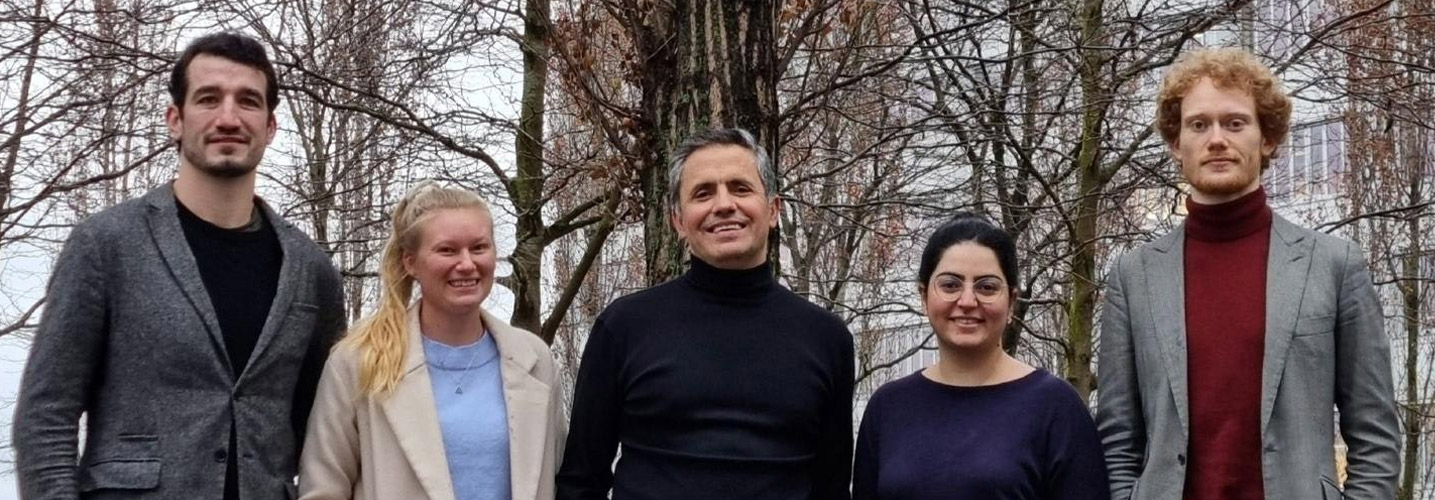Bottneuro wins CHF 150,000 to advance diagnosis and digital therapies for Alzheimer’s disease

Bottneuro will facilitate the early-stage diagnosis of Alzheimer’s disease (AD) and aims to become a leading provider of personalized digital therapies for AD. The Basel-based startup will use digital biomarkers and establish PET scan centers to diagnose AD at an early stage and use these data to deliver a personalized, patient-specific electrical stimulation therapy. Bottneuro will use the CHF 150,000 to set up PET scan centers and further business development activities.
Alzheimer’s disease (AD) is an irreversible, progressive neurodegenerative disease that slowly destroys memory and thinking skills, eventually leading to death from complete brain failure. None of the pharmacological treatments available today slow down or stop the progress of this fatal disease. Because of demographic changes, AD will be one of the biggest challenges of the 21st century. Worldwide more than 50 million people are affected, and in Europe and the US, a new patient is being diagnosed with AD every seven seconds.
New findings show that accumulation of specific proteins in the brain—amyloid-beta plaques and tau fibrils—start building up 10 to 20 years before the first cognitive symptoms appear. Currently, a diagnosis is usually done after mild cognitive impairment and is not based on biomarkers. This is where Bottneuro comes into play: The startup will establish AD diagnosis centers using a new generation of positron emission tomography (PET) scanners to detect the onset of the disease at a very early stage—before the cognitive decline begins. The PET data are used to design a patient-specific electrical stimulation therapy to target affected brain regions for the treatment, which is custom-made for each patient. The patient’s device consists of a personalized, 3D printed headset with embedded electrodes and a control tablet. Bottneuro will advance its patented NENI® neuromodulation platform technology to further develop and fine-tune stimulation protocols.
Bottneuro will fabricate the first series of 100 devices and start clinical trials in 2022; the first PET scan centers will be established in 2023. To support these plans, a CHF 10 million Series A is planned for 2022 and 2023. The Venture Kick funds, complemented by a Kick Fund investment, will lay the foundation for Bottneuro’s ambitious plans and support the preparation of PET scan centers.
“Being part of Venture Kick was a game-changer for Bottneuro. It took me away from the scientific world and provided me with the perfect platform to further advance our business model. The timing between the stages was perfectly selected so one could make substantial advances before presenting the progress to the jury. Seeing also this progress in terms of new partners, investors, and level of product development was very encouraging,” said Dr. Bekim Osmani, Bottneuro co-founder and CEO. The founder’s team of Bottneuro includes experienced managers and experts: Dr. Bekim Osmani served in several management positions before completing his PhD at the University of Basel. Rolf Wildermuth, former country president of Medtronic Switzerland, serves as chairman of the board. Pascal Brenneisen, former country president Novartis Switzerland, is a board member and will support the business development team. Dr. Tino Töpper is an experienced startup entrepreneur holding a PhD in physics. Alois Hopf is currently finishing his PhD thesis at the University of Basel on the modulation of glial cells.
 The operational team of Bottneuro (from left to right): Alois C. Hopf (CSO), Annina Ruffner, Dr. Bekim Osmani (CEO), Mahyar Joodaki, and Julius Klaas.
The operational team of Bottneuro (from left to right): Alois C. Hopf (CSO), Annina Ruffner, Dr. Bekim Osmani (CEO), Mahyar Joodaki, and Julius Klaas.